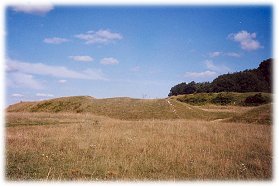Little St. Hugh of Lincoln
Stories of blood libel are not unfortunately unknown in Britain and like central Europe we have our antisemitic stories such as those surrounding William of Norwich, Simon of Trent, Robert of Bury, Harold of Gloucester and Little St. Hugh of Lincoln.
 In Lincoln in the year 1255, an 8 year old boy by the name of Hugh went missing. For several months there was no trace of Hugh. Eventually, the poor boy’s mutilated body was found in a well belonging to a prominent Jew named Copin (or Jopin) who lived at the foot of Steep Hill. The Christian population of Lincoln was outraged and rumours began to circulate that the Jewish community had subjected the boy to a mock trial before torturing him and killing him, collecting his blood for use in their Passover rituals.
In Lincoln in the year 1255, an 8 year old boy by the name of Hugh went missing. For several months there was no trace of Hugh. Eventually, the poor boy’s mutilated body was found in a well belonging to a prominent Jew named Copin (or Jopin) who lived at the foot of Steep Hill. The Christian population of Lincoln was outraged and rumours began to circulate that the Jewish community had subjected the boy to a mock trial before torturing him and killing him, collecting his blood for use in their Passover rituals.
Copin and 90 other Jews were arrested. Copin confessed to the charges under torture and was hanged, drawn and quartered. Eighteen of the others were hanged for refusing to throw themselves on the verdict of a Christian jury. The Jewish community was expelled from Lincoln, though the remaining 72 prisoners were pardoned and set free after the intervention of Richard, Earl of Cornwall, who held the sole right to tax the Jews in England and saw a possible threat to his source of his income. The anti-Semitic rumours spread throughout England, however, and led to the Edict of Expulsion in1290 which banished Jews from England.
After the discovery of Hugh’s body, it was associated with many miracles and led to the boy being canonised as a Saint. Lincoln Cathedral contained a major shrine dedicated to the boy, the ruins of which still remain. Close to the shrine is a plaque bearing the inscription:
![Samuel Hieronymus Grimm [Public domain]](http://www.mysteriousbritain.co.uk/wp/wp-content/uploads/2012/07/Hugh_of_Lincoln_body-300x173.jpg) By the remains of the shrine of “Little St. Hugh”.
By the remains of the shrine of “Little St. Hugh”.
Trumped up stories of “ritual murders” of Christian boys by Jewish communities were common throughout Europe during the Middle Ages and even much later. These fictions cost many innocent Jews their lives. Lincoln had its own legend and the alleged victim was buried in the Cathedral in the year 1255. Such stories do not redound to the credit of Christendom, and so we pray: Lord, forgive what we have been, amend what we are and direct what we shall be.
Although the Jews were banished from England in 1290 many place names in Lincoln still bear witness to the presence of the medieval community. Examples include “Jew’s Court” and “Aaron the Jew’s House”.
Author: P A McHugh



Recent Comments